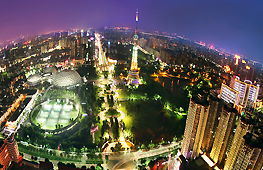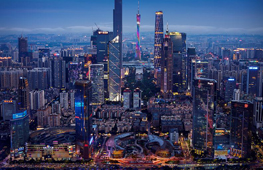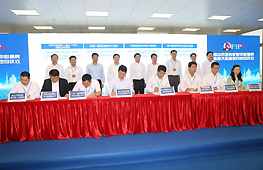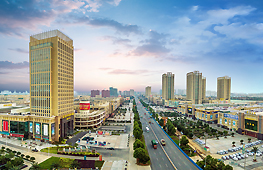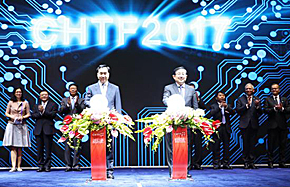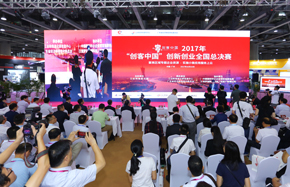Governor: Creativity Cairo's legacy and key to new opportunities
The third UNESCO Creative Cities Beijing Summit discusses how creativity and innovation are key facilitators in building the sustainable and resilient cities of tomorrow, and they are important for Egypt as the country is establishing a new administrative capital city, Cairo Governor Khaled Abdel Aal told China Daily ahead of the event.
He is among the star-studded attendees at this high-level summit, which is being held in Beijing's Shougang Industrial Park on Thursday and Friday.
The summit is a regular platform for members of the UNESCO Creative Cities Network from around the world to exchange their experiences and expertise as well as collectively reflect of how to best strengthen sustainability in urban development.
Innovation and creativity have long contributed to the shift in the way a city works, not just in existing cities but in new ones.
Cairo Governorate, the current Egyptian capital, was established in AD 969 and celebrates its 1,051st anniversary this year. To date it is an original, glorious and historical city where forms of creativity have been manifested since ancient times, according to the governor.
It is the unique creativity that has enabled Cairo to become the capital of Egypt for many centuries. "That creativity appears clearly in the ancient handicrafts, everyday tools such as pots and ceramics and the architectural remains and very old buildings like obelisks and pyramids," he said.
Creativity, which has been passed down to generations and used in designing, drawing and sculpturing, is the most important legacy of the city, he added.
For cities wanting to be ahead of the curve for 5G, he said innovation and creativity will help them find economic opportunities, solutions to social problems and new ways and sophisticated initiatives aimed at improving the life quality of the citizens and fully achieving their prosperity and welfare.
He cited the new capital of Egypt as a working example. "Representing people's dreams, it was built in the desert and will be the first Arab smart city. It lies 35 kilometers east of Cairo, away from the population explosion in Cairo. It can be home to about 6.5 million people, and extend over an area of 700 square kilometers, equaling the size of Singapore."
"It will include the largest airport and the largest opera house in the Middle East, as well as the tallest skyscraper in Africa, as well as a 20 billion euro ($23.79 billion) entertainment district in addition to an urban park similar to Central Park in New York," he added.
There are also two projects in Cairo, Abdel Aal said. They both showed how communications and information technologies were used to produce innovative technological solutions for communities.
The first is a project developed by the Environmental Monitoring Unit in Cairo Governorate. It aims to use information technology in monitoring the performance of companies in the transfer of waste and to beautify the neighborhoods of the city.
The other focuses on improving the services provided to residents in Cairo Governorate. The project converts paperwork into something digital and saves citizens the time of contacting staff members.
"Egypt is on the right path toward the transformation into a digital society, in which its citizens have equal opportunities to participate in the development process and state institutions are integrated to provide innovative digital services," Abdel Aal said. At the summit, heated discussion is sparked over cities' responses to the COVID-19 pandemic that has greatly affected all aspects of urban life and compels them around the world to adapt creatively and with innovation.
The governor noted: "How will we live in the post-epidemic era, not only in Cairo, or Egypt, but in the whole world? It is not only an existential question, but rather a global concern.
"Urban resilience is a city's ability to survive and thrive in the face of disasters. Now is an ideal time to rethink how we do city planning, build and exploit the space and land available in the future before it's too late. We have a great responsibility for the future of our regions, cities and towns."






